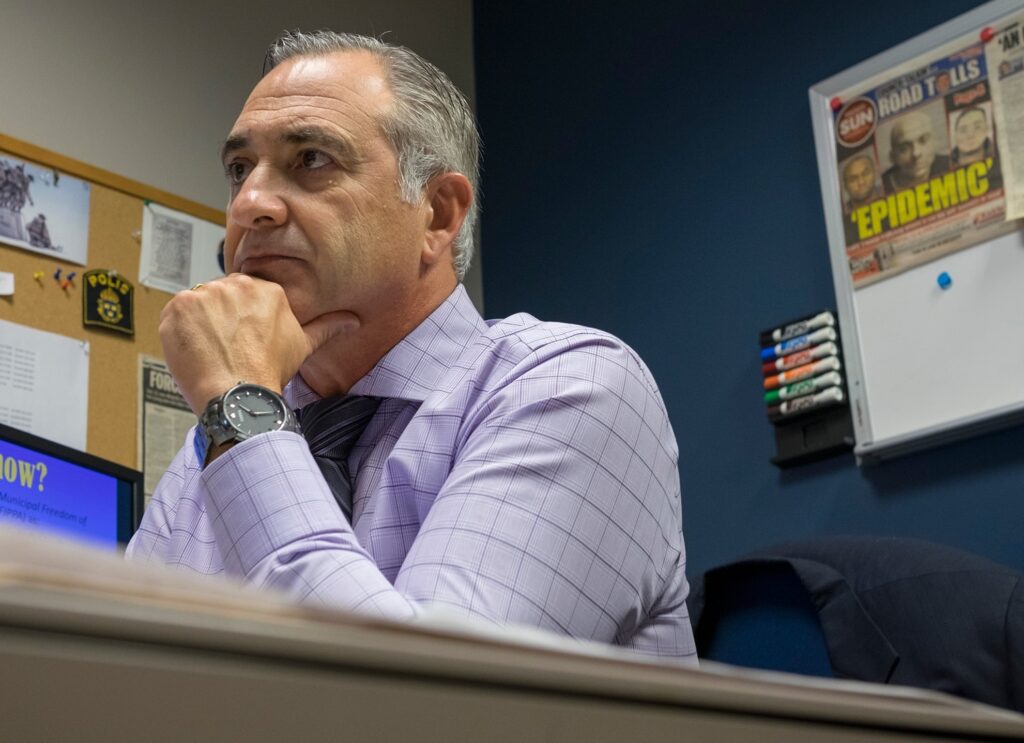There’s been some chatter from Ottawa suggesting that Federal Justice Minister, David Lametti, would support changes to Canada’s prostitution laws, and that Liberal MP Hedy Fry is providing an enthusiastic push to legitimize such activities.[i] This would be an unpopular move with the majority of Canadians voters, according to a recent Nanos Research poll.[ii] Still, NDP Justice critic, Randall Garrison argues that decriminalization would bring safety to prostitutes and filed a motion in July requesting a parliamentary committee look into the matter.[iii]

Prostitution is illegal in Canada because it’s harmful to those who participate in it. That harm falls primarily on the women and girls who provide sexual services. Though prostitution is never safe, the debate about how to reduce its human cost rages on. To help you reinforce your perspective on the matter, I offer a brief rebuttal of three popular fallacies you’re likely to hear in discussions about making prostitution safer and ending the human trafficking that is associated with it.

Various Western countries have changed their legal approaches to prostitution in recent decades, providing us with an opportunity to learn from their experiences. The body of evidence internationally, demonstrates that legalization and decriminalization increase the volume of sex trade activities, and with it, human trafficking and other forms of violence. One researcher who studied the decriminalization of prostitution in Rhode Island concludes, “If prostitution is not recriminalized, the commercial sex industry, and consequently sex trafficking will continue to increase.”[iv]
Canada’s pre-2014 prostitution laws didn’t actually make prostitution illegal but made it more difficult for prostitutes (or ‘the prostituted’) and generally gave a free pass to their male buyers. Those laws were eventually hit with a charter challenge called Bedford versus Canada.[v] The attorney who launched the challenge, Alan Young, admitted to the Supreme Court that no country that legalized prostitution has successfully reduced the violence. Still, Young won his case. But within a year, the Harper Conservatives replaced the old laws with more helpful legislation; a version of the ‘Nordic’ or ‘Equality’ model. It outlawed the purchase of sexual services while making limited concessions for prostitutes, because they are assumed to be exploited persons. We can be thankful that Canada did not, instead, legalize or decriminalize prostitution because that would have only played into the hands of human traffickers and expanded exploitation, as we have observed in other countries.[vi]

Canada’s human trafficking laws are important for prosecuting offenders and helping to raise awareness about this hideous crime, but they don’t stop human trafficking from occurring. As long as we bank on the theory that we’ll end human trafficking by arresting pimps, we’ll continue failing to protect vulnerable women and girls. This is best evidenced in Ontario where the number of charges for buying sex is negligent, but the resources poured into human trafficking prosecutions are massive. Just last year, the then head of the Toronto Police Human Trafficking Unit, Nunzio Tramontozzi told CBC news: “[human trafficking is] really at an epidemic proportion now in Toronto…and across Canada.” While he was reluctant to laying charges for the purchase of sexual services, his team was arresting one or more pimps per week, on average. What was the result? “We have victims as young as 12 years old being forced into the sex trade…we’re not keeping up.”[vii]

Thankfully, our current prostitution laws have great potential for combatting human trafficking. I’ll explain how that works. To understand ‘the game’, you need to know the players. Many traffickers, or ‘pimps’, operate in a subculture where achievement is gauged largely by notoriety. Avoiding prosecution does nothing to build the infamy that is the quintessential measure of success. Therefore, the risk of arrest can be as much an enticement as a deterrent. Contrast that with the typical sex buyer, or “john”, who cultivates the opposite persona. To protect his good and decent reputation, he is likely to avoid arrest at all costs; even if it means resorting to self-control.
Pimps may more easily draw our contempt, but if men will stop buying sex, there will be no human trafficking of young women in prostitution. Like any other industry that operates on the principal of supply and demand, if the money stops, the sex trade will grind to a halt. You cannot stop the violence of the sex trade and allow men to fund it. We have a choice to make: We can protect the girls, or we can protect the men who pay for access to their bodies.

As long as one remains in the darkness of the sex trade, perceptions are skewed: Laws are cruel, police officers are the enemy and one will eventually surrender to the recurring abuse that is part and parcel of the industry. Those who become immersed in this subculture quickly experience an identity shift that causes them to view the world through an entirely different lens. Studies show the impact of prostitution to include extreme mental health difficulties. The damage is so troubling that even those who help rehabilitate these women are adversely affected.[viii] The things that expose a woman to, and keep her enmeshed in, this underworld should rightfully evoke compassion and a desire to understand. But she must not be the one to guide us on matters of justice while she remains captive to that altered mindset.
There are, however, many who, exit the sex trade and regain their place in society. And they achieve this while managing debilitating anxiety, mood disorders and, often, addictions. These are the sex trade ‘survivors’ who only begin to heal once they have exited prostitution and cut ties with those who remain involved in it. They will be first to tell you that ‘sex work’ is an illegitimate term because it’s meant to deny the inevitability of exploitative relationships and ongoing violence. While some prefer not to recount the atrocities they’ve endured, others confront their past, speaking on behalf of those who cannot yet grasp the truth about their experiences.
In conclusion, Canada’s 2014 legislative approach[ix] to prostitution provides this country’s very first offering of meaningful protection from commercial sexual exploitation. The rationale for discouraging prostitution is well founded and we must stay the course. Should the current Liberal government remove prohibitions on buying sex, it will be a callous betrayal of those for whom they claim to advocate.
[i] Liberals lay groundwork for amending law that criminalizes the sale of sex in Canada, NOW Magazine, July 2, 2020 Liberals lay groundwork for amending law that criminalizes the sale of sex in Canada – NOW Magazine (nowtoronto.com)
[ii] Poll: Majority of Canadians do not want legal prostitution: PowerPoint Presentation (myftpupload.com)
[iii] NDP Report: NDP MP requests a review of dangerous laws that put the lives of sex workers at risk « Canada’s NDP
[iv] Sex Trafficking and Decriminalized Prostitution in Rhode Island, 2009, Melanie Shapiro University of Rhode Island: Sex Trafficking and Decriminalized Prostitution in Rhode Island (uri.edu)
[v] Wikipedia provides a good overview of Bedford v Canada: Canada (AG) v Bedford – Wikipedia
[vi] Does Legalized Prostitution Increase Human Trafficking? byCho, Seo-Young, Dreher, Axel and Neumayer, Eric, Does, January 16, 2012 Does Legalized Prostitution Increase Human Trafficking? | Together Against Trafficking in Human Beings (europa.eu)
[vii] CBC News Article, Luring of girls into sex trade reaching ‘epidemic’ level, police say | CBC News May 10, 2019
[viii] Symptoms of Posttraumatic Stress Disorder and Mental Health in Women Who Escaped Prostitution and Helping Activists in Shelters (nih.gov) Young-Eun Jung, Jeong-Min Song, Jihye Chong, Ho-Jun Seo, and Jeong-Ho Chae Yonsei Medical Journal. 2008, Jun 30
[ix] Canada’s new prostitution laws: Everything you need to know by Josh Wingrove. JULY 15, 2014 in The Globe and Mail

